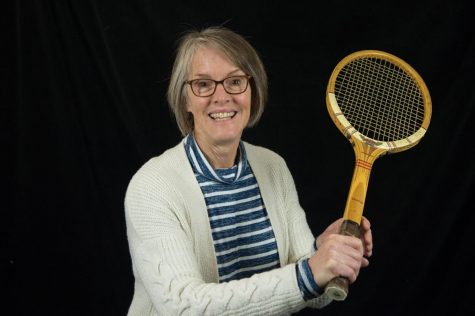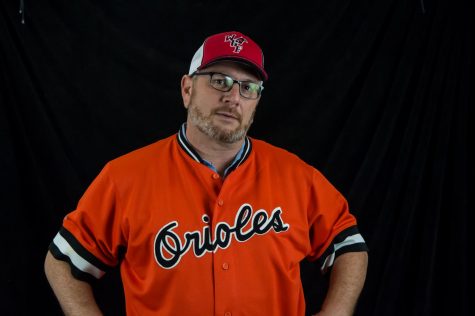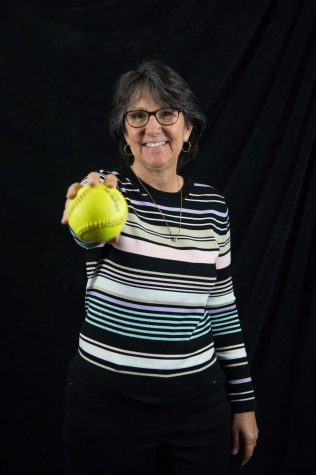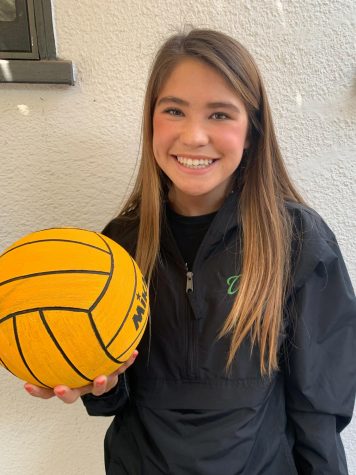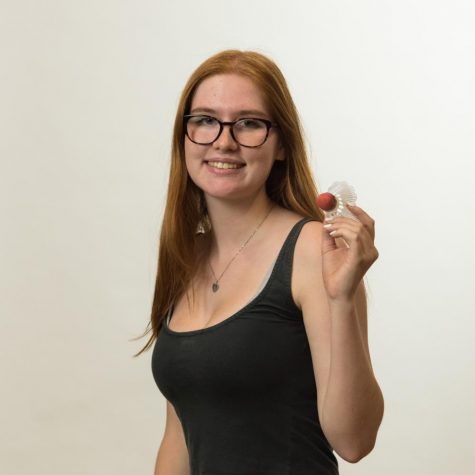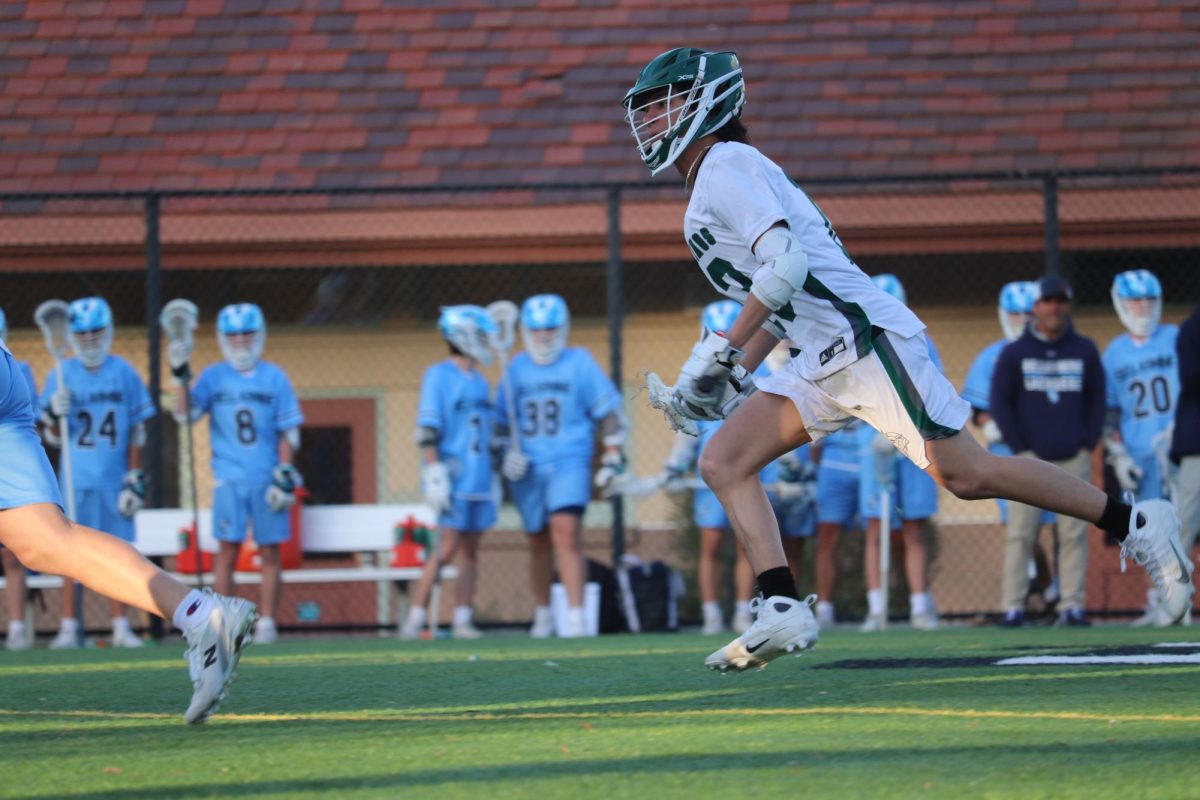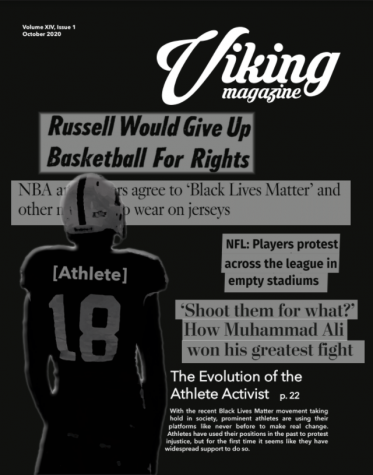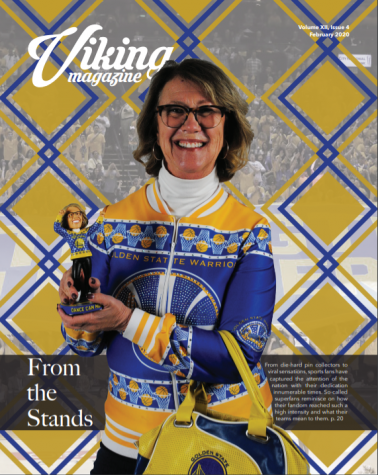Ballers to Scholars
From astounding athletes to esteemed educators, Paly teachers have been doing it all for decades. Viking sat down with collegiate-athletes-turned-Paly-teachers to learn about their experiences.
February 20, 2020
Ms. Whitson
Although Debbie Whitson is a beloved economics teacher at Palo Alto High School, she also once had a career as a Division III tennis player at Lewis and Clark College.
Whitson grew up in Los Altos and started playing tennis when she was nine years old because that was the minimum age requirement to take tennis lessons at the local recreation department. As the popularity of tennis heightened in the 1960s and 1970s, Whitson also fell for the trend.
Whitson had an active childhood, participating in many sports throughout middle school and high school including a four year career in gymnastics. Whitson was drawn to Tennis because of the hand-eye coordination skills needed and enjoyed the outdoor aspect.
Once Whitson went to high school, there were not many organized sports for girls other than tennis. Despite there not being club tennis teams, Whitson took lessons and still found a way to participate in community tennis events.
After high school, Whitson knew that she wanted to attend Lewis and Clark College for academics and they also had a Division III tennis team that she could compete on.
Whitson continued to enjoy tennis throughout college and had many positive experiences at Lewis and Clark College. Administrators and staff would often come to sporting events which made Whitson feel more connected to her school.
“It’s almost like you belong to something and you’re part of something for your school, so you have some pride in that,” Whitson said.
Although tennis is more of an individual sport, Whitson had great teammates to encourage her. Throughout college, Whitson took leadership on her team and led conditioning in order to keep her team in shape.
Even though her team never went to nationals together, Whitson qualified for nationals at the end of each season in singles as well as with her doubles partner.
In her senior fall term, Whitson had the opportunity to play doubles with someone who worked for George H. W. Bush, the Vice President at the time, and flew to D.C. to do so.
“We would go to these indoor courts and senators were playing around us,” Whitson said.
It was exciting for Whitson to see the tennis scene in D.C. and get the opportunity to play with others. College athletics gave Whitson opportunities to travel and compete, while still focusing on school. Whitson was able to major in economics and play tennis without having to make big sacrifices.
After college, Whitson waited about five years before becoming a teacher.
“I had people who would tell me, oh my gosh, you would be such a good teacher,” Whitson said. “I kept hearing that.”
Whitson taught at Gunn High School, simultaneously carrying on her tennis skills by working with their tennis team for a year. Once Whitson came to Paly, she focused on teaching.
Although her competitive drive from college has decreased, Whitson still participates in pickleball to stay active and have fun outdoors.
Whitson tried passing down her tennis skills onto her two daughters, but the sport was not for them. Instead, her daughters both chose to play volleyball and were collegiate athletes themselves. They both graduated from Paly and played Division I volleyball at University of California Davis and University of Pacific, respectively.
Although Whitson did not play the same sport as her daughters, her experiences as a collegiate athlete helped her connect with them. Whitson always believed in their dreams as athletes.
“I also knew how much it means to be an athlete,” Whitson said. “If you’re an athlete, then your body needs to be an athlete.
Mr. Shelton
During his time at Goucher College, Palo Alto High School world History teacher, Daniel Shelton, played Division III lacrosse. Shelton went to high school at Paly and played lacrosse outside of school because there was not a boy’s lacrosse team yet. In high school, Mr. Shelton was a competitive lacrosse player and even started on a club team as a freshman. Although he was talented within the Bay Area, once Shelton got to Goucher, he quickly realized how average his skills were.
“I had this mindset that I was very, very good, but then I got to college and I was like ooh I’m average,” Shelton said. “Like I’m good enough … but not much else.”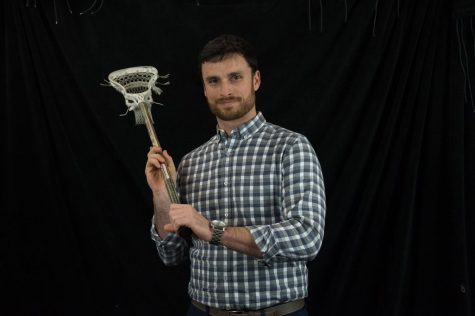
Aside from the high collegiate skill level, Shelton also had trouble getting along with his teammates. Shelton believed that they were “naive and closed-minded kids from the middle of nowhere,” which made them difficult to get along with. Shelton, being from Palo Alto, didn’t quite see eye-to-eye with them on many matters.
Shelton became overwhelmed with his teammates and lack of playing time, so he thought about quitting collegiate lacrosse. In the end, he decided that even with the struggles, he wanted to continue training to hopefully get more playing time.
“If I wanna play, I need to work harder,” Shelton said.
When Shelton came back from his freshman year, his mom noticed a complete transformation in his personality. She noted that he had a more positive work ethic and outlook on life.
“I would not have finished college the way that I did, done graduate school the way I did, gotten a job, all those things came from the work ethic I gained and developed freshman year,” Shelton said.
During Shelton’s senior year, his team made it to the NCAA tournament and lost in the second round to the number one team in the country. Shelton was very upset by the loss, but he was still proud of their accomplishments as a team.
“I’m some random kid from Palo Alto, never expected to play, yet I made it all this way, and now I’m sitting at the NCAA tournament.” Shelton said.
Shelton had to dedicate many hours to keep good grades while still playing lacrosse. Even though he played a sport he was still able to study abroad, do well in school, and have an overall beneficial academic experience.
“I always sat at the front of the bus behind the coaches, and the cool kids kinda sat in the back, but I just sat there, headphones on, doing my homework,” Shelton said.
Shelton majored in international relations and received a minor in European history. When he was little, Shelton used to joke that he would retire as a world history professor with elbow patches and a pipe.
Shelton is about to start his seventh season as the boy’s varsity lacrosse coach at Paly. Shelton has been coaching since high school and kept continuing his passion. He began coaching by running his own lacrosse camp, then coached at Mountain View, and now has settled at Paly.
“I never got to wear Paly on the lacrosse field, so I love being able to give the kids an opportunity that I never had,” Shelton said.
Shelton understands that not everyone gets that privilege to play and that it’s not a guaranteed sport. He wants all of his players to appreciate the time they have on the field.
“The playing component has become a lot less important to me,” Shelton said. “It’s the coaching that’s definitely my passion.”
Mr. Berkson
Jerry Berkson, Paly’s assistant principal, played baseball at the College of San Mateo for four years. Berkson was unusual in a sense because most guys do not play baseball for four years at community college.
“It is one of my claims to fame for alumni, as many guys don’t have a senior year of community college,” Berkson said.
Berkson started playing baseball at eight years old in Little League. He then continued on to Babe Ruth, Senior Babe Ruth and finally to the high school team at Hillsdale High school. Once he reached high school, he was not a stand out athlete.
“Freshman year I was offered to be the 20th guy on the team and I would’ve had to wear a different uniform,” Berkson said.
He decided not to play his freshman year, but worked very hard over the summer to improve his game. Berkson was fortunate enough to play on the JV coach’s Babe Ruth team over the summer between freshman and sophomore year. He made the team the following spring and was able to play from sophomore to senior year.
Berkson kept working hard throughout high school and was a collegiate athlete hopeful, but thought playing in college was going to be easier than it really was.
“I remember wanting to go to Arizona State, and in hindsight, I had absolutely no chance,” Berkson said. “I thought I was a big deal when I got a postcard from the College of San Mateo coach, telling me that he was looking forward to me coming out. I thought I was pretty special until I realized that a lot of kids got postcards”.
Berkson’s first year at College of San Mateo, he “gray-shirted,” meaning he postponed his enrollment in classes until the second term of his freshman year. The second-year he red-shirted due to injury. As a pitcher, Berkson hurt his shoulder right before the beginning of the season, but because he red-shirted, he was allowed to play for two more years.
Berkson’s third year at the school, he was finally eligible to play; however, he sat the bench and quit mid-way through the season. There even was a game in his season where his team was up by 12 runs, but Berkson still did not play.
“I thought he might put me in, but I didn’t really want to go in at that point because I wasn’t mentally prepared to play, so I figured I was done at that point,” Berkson said.
Finally in his fourth year playing, he had a great season with plenty of playing time. However, during this time Berkson would not describe himself as a passionate student.
“I didn’t balance academics and athletics and that’s why I was at a junior college for 4 years,” Berkson said.
His main priority for the first four years of college was to be eligible to play baseball because Berkson loved the sport. Even with all the hardships throughout his baseball journey, Berkson does not regret one minute of it because he believes that the connections that you make playing baseball will last a lifetime.
“I wouldn’t be where I am today, I was a mediocre ballplayer, so if I had never played in community college I would’ve never been a varsity baseball coach somewhere, probably never would have gotten an education, probably wouldn’t be where I am today,” Berkson said.
Berkson is now a baseball coach and has developed one of the top travel ball programs in northern California.
“Baseball has done so much for me, and coaching allows me to stay in the game,” Berkson said.
Coaching has allowed him to help a lot of kids who may have fallen through the cracks to maximize their potential. He is still coaching the West Coast travel team and is currently coaching the 14U team which is his son’s team.
“I can still throw strikes all day,” Berkson said.
Ms. Bowers
The crack of a bat snapped her out of her trance. The ball seemed to fly in slow motion as she sprinted from one end of the field to the other. Leaping and diving, she reached out with her glove to make the catch. All of a sudden, her teammate appeared out of nowhere. Unable to move out of the way in time, they collided, sending her sprawling over the grass, out cold.
Before Mrs. Bowers was a well-liked geometry and calculus teacher at Paly, she made a name for herself playing Division I softball at Stanford. Growing up in Southern California, Bowers fell in love with softball when she was seven years old and has been involved with it ever since.
Throughout her childhood, Bowers loved to keep active, playing basketball, volleyball, and soccer on top of softball throughout highschool. Bowers enjoyed softball the most out of all the sports she played, and believed she was good enough to play at the next level.
During high school, Bowers considered pursuing a college career in softball at the varsity level, but then realized that she was not interested in only focusing on softball.
She decided to go Stanford, Bowers explored other options in her freshman year, studying economics. However, by her sophomore year, she felt bored from the lack of athletics in her life.
“I always loved sports and I was always very sporty and all that, and it was just more that I tried not playing and I was bored and you have to go back,” Bowers said.
In her first year playing, Stanford’s women’s softball was only considered a club sport. After spending her sophomore season playing club softball, Stanford finally gave it the varsity sport title.
Having played for three full years with her teammates, Bowers recalls the most enjoyable parts of being on the team.
“You get to know a group of people really well… and have a little bit of a different experience that way,” Bowers said. “That camaraderie was really fun.”
Bowers loved the team sport experience as a whole, but one moment stood out to her in particular throughout her three seasons. She recounted a game against Arizona, the fifth ranked team in the nation at the time.
“The Arizona schools they had been to were university, and had all scholarship athletes,” Bowers said. “I mean they had great, great athletes.” Bowers said.
During the game, Bowers was a star on both sides of the bat. “We beat them one to nothing… we squeaked out a run in the third inning and I was involved in it,” Bowers said.
“Our third baseman had gotten hurt,” Bowers said. “I was normally second and first, but our third baseman had gotten hurt maybe six weeks before, so I had gotten moved to third for my senior year. Our pitching was slow, so of course they’re pulling them all. And it was fascinating because, of the 21 outs in the game, I had something like 13 or 15 right to me.”
“That was very fun, and our pitcher didn’t walk people, you know, everybody kind of was on the ball,” Bowers said. “It was just great, it was a full team effort and to beat them who were ranked number five.”
In Bowers’ senior season, everything seemed to click. “My senior year I hit very well and I was second team all region.” Bowers said.
After graduating from Stanford, Bowers was unsure of what to do next. She had previously coached youth softball, and enjoyed her interaction with that age group. She found an ad in the paper for a tutor during the summer for a local private school and decided to try it out.
After tutoring in the summer, Bowers decided to teach, interning at Gunn while still coaching junior varsity softball at Paly. The next year, Paly had an opening for a teacher, and Bowers jumped at the opportunity.
Bowers remained active, coaching softball and even playing on a co-ed team until she was around 40.
The impact of softball and sports in general has been huge for Bowers throughout her life, still able to remember the exact events of that Arizona game now, some 30 years later.



